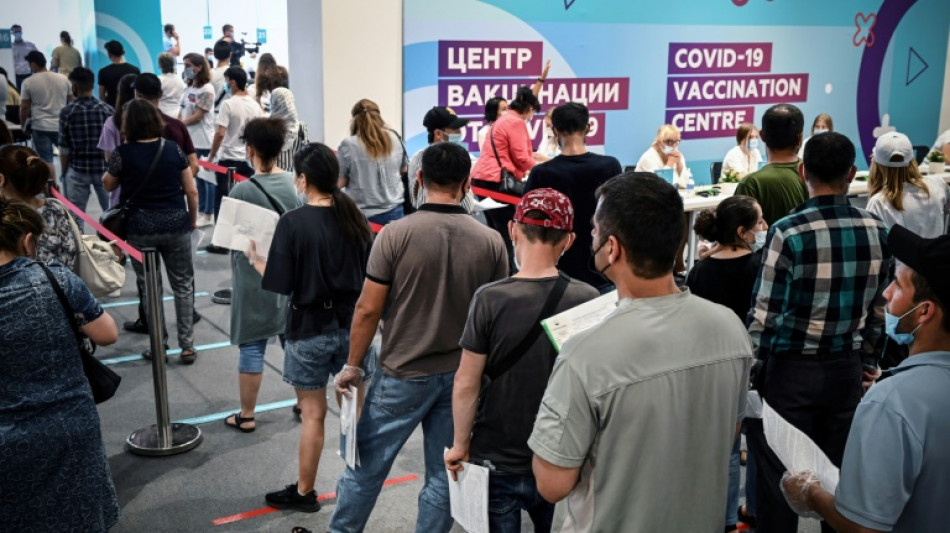
-
 Lopetegui appointed coach of Qatar
Lopetegui appointed coach of Qatar
-
UK counter-terrorism unit probes rappers Kneecap but music stars back band

-
 Yamal heroics preserve Barca Champions League final dream
Yamal heroics preserve Barca Champions League final dream
-
2026 T20 World Cup 'biggest women's cricket event in England' - ECB
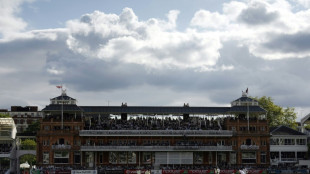
-
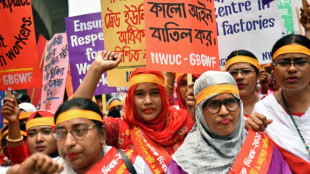 Bangladesh begins three days of mass political rallies
Bangladesh begins three days of mass political rallies
-
Children learn emergency drills as Kashmir tensions rise
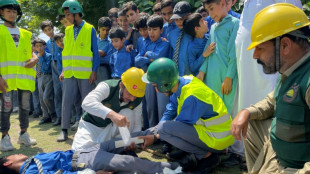
-
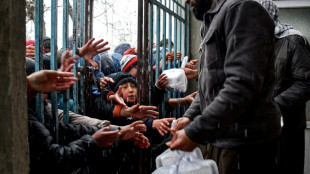 Millions of children to suffer from Trump aid cuts
Millions of children to suffer from Trump aid cuts
-
Veteran Wallaby Beale set for long-awaited injury return
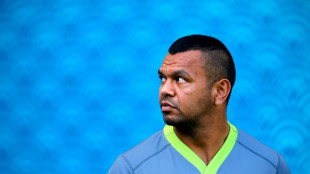
-
 Syria's Druze take up arms to defend their town against Islamists
Syria's Druze take up arms to defend their town against Islamists
-
Tesla sales plunge further in France, down 59% in April

-
 US calls on India and Pakistan to 'de-escalate'
US calls on India and Pakistan to 'de-escalate'
-
Israel reopens key roads as firefighters battle blaze

-
 Europe far-right surge masks divisions
Europe far-right surge masks divisions
-
James will mull NBA future after Lakers playoff exit

-
 Ukraine's chief rabbi sings plea to Trump to side with Kyiv
Ukraine's chief rabbi sings plea to Trump to side with Kyiv
-
Australian mushroom meal victim 'hunched' in pain, court hears

-
 Lakers dumped out of playoffs by Wolves, Rockets rout Warriors
Lakers dumped out of playoffs by Wolves, Rockets rout Warriors
-
Booming tourism and climate change threaten Albania's coast

-
 US reaching out to China for tariff talks: Beijing state media
US reaching out to China for tariff talks: Beijing state media
-
Tariffs prompt Bank of Japan to lower growth forecasts

-
 Kiss faces little time to set Wallabies on path to home World Cup glory
Kiss faces little time to set Wallabies on path to home World Cup glory
-
Serbian students, unions join forces for anti-corruption protest

-
 Slow and easily beaten -- Messi's Miami project risks global embarrassment
Slow and easily beaten -- Messi's Miami project risks global embarrassment
-
Fan in hospital after falling to field at Pirates game

-
 Nuclear power sparks Australian election battle
Nuclear power sparks Australian election battle
-
Tokyo stocks rise as BoJ holds rates steady

-
 Bank of Japan holds rates, lowers growth forecasts
Bank of Japan holds rates, lowers growth forecasts
-
'Sleeping giants' Bordeaux-Begles awaken before Champions Cup semis

-
 Napoli eye Scudetto as Inter hope for post-Barca bounce-back
Napoli eye Scudetto as Inter hope for post-Barca bounce-back
-
Germany's 'absolutely insane' second tier rivalling Europe's best

-
 PSG minds on Arsenal return as French clubs scrap for Champions League places
PSG minds on Arsenal return as French clubs scrap for Champions League places
-
UK WWII veteran remembers joy of war's end, 80 years on

-
 Myanmar junta lets post-quake truce expire
Myanmar junta lets post-quake truce expire
-
Rockets romp past Warriors to extend NBA playoff series

-
 Messi, Inter Miami CONCACAF Cup dream over as Vancouver advance
Messi, Inter Miami CONCACAF Cup dream over as Vancouver advance
-
UN body warns over Trump's deep-sea mining order

-
 UK local elections test big two parties
UK local elections test big two parties
-
US judge says Apple defied order in App Store case

-
 Seventeen years later, Brood XIV cicadas emerge in US
Seventeen years later, Brood XIV cicadas emerge in US
-
Scorching 1,500m return for Olympic great Ledecky in Florida

-
 Israel's Netanyahu warns wildfires could reach Jerusalem
Israel's Netanyahu warns wildfires could reach Jerusalem
-
Istanbul lockdown aims to prevent May Day marches

-
 Budget Approval Expected Saturday for RONN Inc.-Saudi Arabia Hydrogen Joint Venture
Budget Approval Expected Saturday for RONN Inc.-Saudi Arabia Hydrogen Joint Venture
-
May is Teen Mental Health Awareness Month Avel eCare Provides Crucial Support for Teens in Crisis-At Home and In School

-
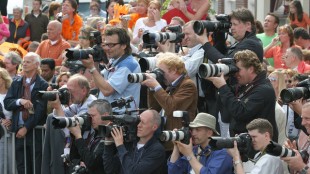 Interactive Strength Inc. (Nasdaq:TRNR) Updates Shareholders on 2025 Progress To Date
Interactive Strength Inc. (Nasdaq:TRNR) Updates Shareholders on 2025 Progress To Date
-
NextSource Materials Announces Executive Transition to Drive Molo Mine Optimization and Prepare for Future Expansion

-
 Trademark Renovations Named 2025 Consumer Choice Award Winner for Home Renovation in Southern Alberta
Trademark Renovations Named 2025 Consumer Choice Award Winner for Home Renovation in Southern Alberta
-
NURAN WIRELESS Reports Annual Audited 2024 Financial Results

-
 Organto Foods Announces Debentureholder Approval of Settlement Terms
Organto Foods Announces Debentureholder Approval of Settlement Terms
-
Mereo Networks Acquires DISH Fiber and Rebrands as Mereo Fiber


Russia loses a million people in historic population fall
Russia's population declined by more than one million people in 2021, the statistics agency Rosstat reported Friday, a historic drop not seen since the collapse of the Soviet Union.
Ongoing demographic woes have been exacerbated by the pandemic with Rosstat figures showing more than 660,000 had died with coronavirus since health officials recorded the first case in the country.
The new figures continue a downward trend from the previous year when Russia's population fell by more than half a million.
The Covid-related fatalities figures published monthly by Rosstat are far higher than death figures released by a separate government website, which is dedicated to tracking the pandemic in the country.
Those government website figures only take into account fatalities where the virus was established as the primary cause of death after an autopsy and shows just 329,443 total fatalities.
The discrepancy has fed into criticism that the Russian government has been downplaying the severity of the pandemic in one of the worst-hit countries by cases in the world.
Russia has struggled to curb the pandemic due to a slow vaccination drive coupled with limited restrictive measures and rampant non-compliance with mask-wearing in public places.
The pandemic death toll exacerbates the demographic crisis, linked to low birth rates and a short life expectancy, that Russia has faced for the past 30 years.
Birth rates have been falling because the generation now becoming parents were born in the 1990s, when the birth rate plunged due to economic uncertainties after the collapse of the Soviet Union.
The number of births per woman stands at around 1.5, well short of the minimum of 2.1 necessary to renew the population.
- Economic concerns -
Russia's shrinking population has been at the top of President Vladimir Putin's domestic agenda since he came to power over two decades ago.
In addresses to the nation, Putin frequently encourages Russians to have more children and live a healthier lifestyle to improve life expectancy.
The government has introduced a number of financial incentives for parents with more than one child, such as cash bonuses and favourable mortgage rates.
During his annual press conference last December, Putin stressed that 146 million people are not enough for the country from a "geopolitical standpoint" and leave labour shortages.
He added that it is important to show that it is a "joy to have children" and that there is "no greater happiness in life and in the world".
"The demographic crisis is definitely a failure of the state's policies," said Sergei Zakharov, a demography expert at the Higher School of Economics based in Moscow.
He told AFP that measures to increase the birth rate encourage families to have children earlier but do not change how many children they want in total.
He said the government's influence on birth rates is "limited" and shifting births to an earlier period will result in a "demographic gap" in the future.
For Stepan Goncharov of the independent Levada Centre pollster, the low birth rate is connected to widespread "uncertainty about the future".
Living standards in Russia have continuously deteriorated since 2014, with the economy strained by repeated Western sanctions, dependence on the oil and gas sector and widespread corruption.
"People haven't stopped buying and their income and savings have reduced," Goncharov said.
According to last year's survey by recruitment website SuperJob, 43 percent of Russians do not have any savings.
"People are not setting money aside and are not planning the future of the family," Goncharov added.
Y.Aukaiv--AMWN